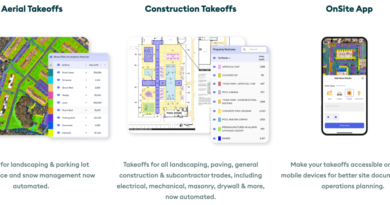Select Star closes $15M round to add context to disparate data
Select Star, a startup providing data discovery, lineage and governance tools to mostly enterprise organizations, today announced that it raised $15 million in a Series A round led by Lightspeed Venture Partners with participation from Bowery Capital, Sozo Ventures and Pebblebed. The fresh cash brings the company’s total raised to $20 million, and CEO Shinji Kim tells me that it’ll be put toward product engineering, go-to-market and customer success efforts.
“The explosion of data and apps makes it challenging to ensure good data governance while allowing data teams to leverage all the appropriate data in a self-service fashion,” Kim said in an email interview with TechCrunch. “Traditional tools exist for enterprise data catalog and data governance but they require a lot of manual configuration and training to be fully leveraged within the organization, which is where Select Star comes in.”
Kim was previously the CEO of data processing provider Concord Systems, which was acquired by Akamai in late 2016. She joined Akamai and led the company’s internet of things data platform for real-time messaging, and — while there — noticed an unfortunate pattern. According to Kim, many of Akamai’s enterprise clients were running into issues understanding and using all their data as they moved to cloud database infrastructures, usually because the context of data was missing.
By “context,” Kim means an aggregate view of how data’s flowing and being used within and between services, apps and tools — which is exactly what Select Star provides. The platform analyzes metadata and logs from Snowflake, Google BigQuery, Amazon Redshift, Databricks, Tableau, Looker and other popular platforms, and then attempts to automatically tag and distill events down into bullet points.
Select Star also creates a continuously updated inventory of key data assets, models and business metrics. Delivering a system of record for all the data across an organization and teams, the platform tries to expose the most significant database-level relationships.

Image Credits: Select Star
“We automatically generate customers’ data model, data lineage, documentation, detect personally identifiable information and more, so there’s minimal work required on the setup and you can get insights right away,” Kim said. “Our column-level lineage models give a deep understanding of end-to-end data flows, which helps data teams to avoid data models and dashboards from breaking.”
This sort of context, Kim avers, can help enterprises become more data-driven — particularly those that work with multiple, large, disparate data sets on a regular basis. For example, a business might want to look at sales data, marketing data and product usage data together to get a complete profile of a customer. Gathering and normalizing all that info might present a challenge not only from a technical perspective, but because different departments and people might interpret the data in different ways.
To Kim’s point, for one reason or another, few companies consider themselves truly data-driven despite their best efforts. In a 2021 NewVantage survey, only 30% reported having a well-articulated data strategy. A separate recent report from Accenture found that only 33% of businesses trust “their data enough to use it effectively and derive value from it.” And in a 2019 poll conducted by Arm Treasure Data, 47% of respondents indicated that their company’s data was “siloed and difficult to access.”
“Having an automated data discovery platform like Select Star can act as the single source of truth that everyone can refer to,” Kim said. “This helps eliminate any confusion, fosters trust in data and encourages more analytics work to be done effectively.”
I’d be remiss if I didn’t mention the other startups tackling this same problem, in some cases from noticeably different angles. Castor comes to mind — it’s building data catalogs, or collections of metadata, data management and search tools designed to help users find the data they need within an organization. There’s also Alation, Data.World and Collibra, which similarly offer data search and data lineage-tracking tools, as well as data observability firms such as Manta and Unravel Data.
Kim expressed confidence that Select Star can compete — and is competing — exceptionally well, though, pointing to a customer base that includes Square parent company Block, Pitney Bowes, Fivetran, Opendoor and Handshake. She declined to comment on revenue metrics, but said that the plan is to double Select Star’s 20-person workforce by the end of the year, suggesting some optimism about the future.




